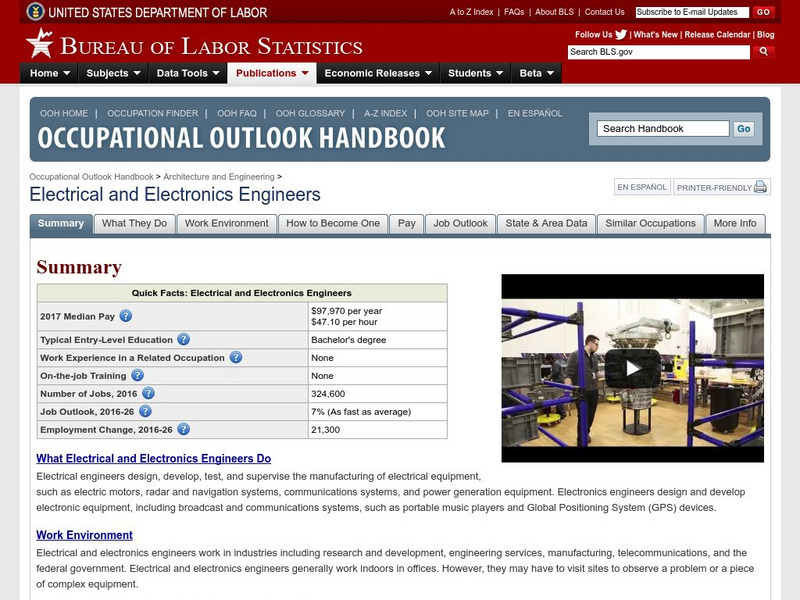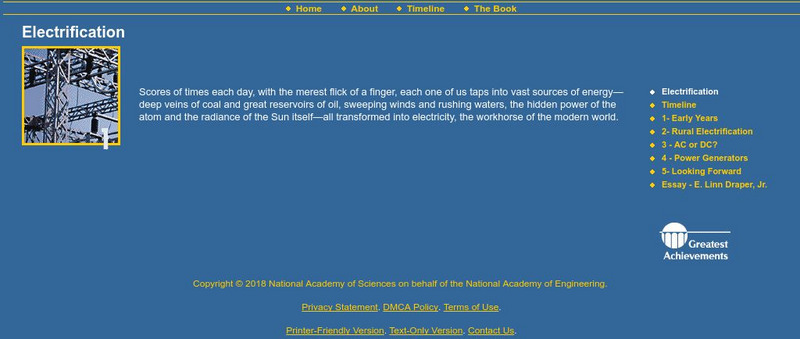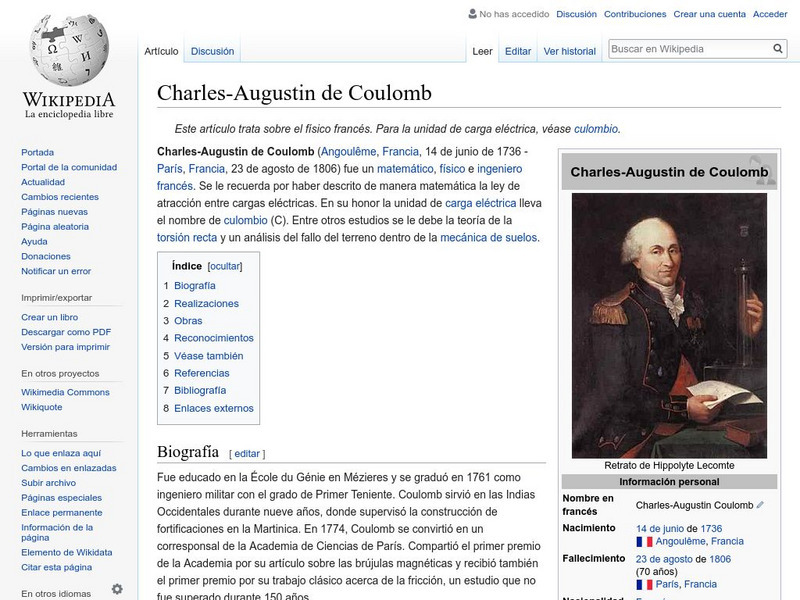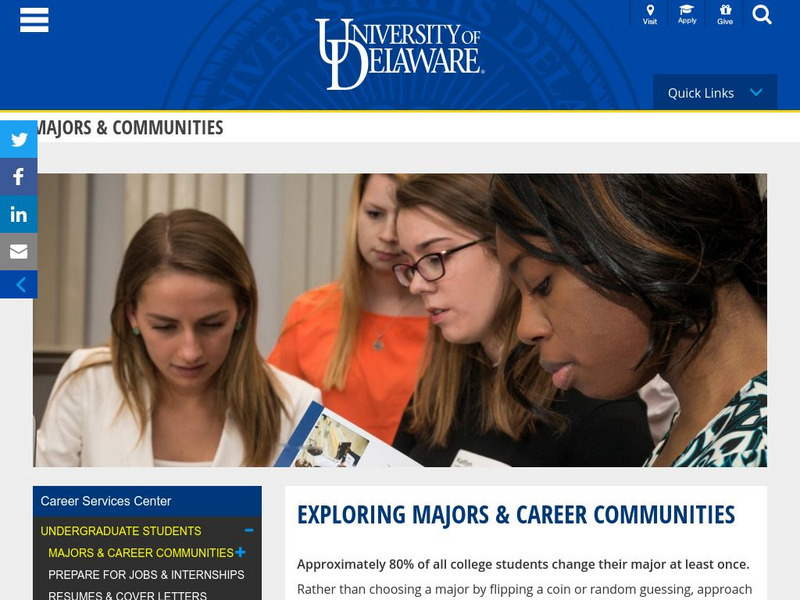PBS
Hands-On Engineering Challenges to Bolster Your Electricity, Sound, and Force Units
Need some activities to go along with your unit? A collection of hands-on activities from PBS offers opportunities to add to your electricity, sound, and force units. The electricity activities revolve around building a...
EEWeb
Geometry: Shapes and Solids
An excellent resource for a geometry class, as well as for an electrical engineering course. A thorough reference sheet covers geometric shapes such as triangles, parallelograms, and circles, as well as 3-D shapes and the Pythagorean...
Teach Engineering
The Temperature Effect
How temperature affects the efficiency of a solar panel is the focus of the third in a series of eight resources that presents how engineers are able to control the temperatures of photovoltaic panels. Class members find out how the...
Teach Engineering
Maximum Power Point
Investigate the maximum power output of a photovoltaic panel with a instructional activity that introduces the class to the maximum power point. Individuals learn how to determine the maximum power point of a solar panel by using Ohm's...
Teach Engineering
Ice, Ice, PV!
Knowing the temperature coefficient allows for the calculation of voltage output at any temperature. Groups conduct an experiment to determine the effects of temperature on the power output of a solar panel. The teams alter the...
Teach Engineering
Solar Angles and Tracking Systems
The sun will continue to rise in the east and set in the west, no matter what. The first instructional activity in a series of eight introduces the class to solar angles. It makes connections between a person's latitude and the angle of...
Teach Engineering
Concentrated Solar Power
The seventh segment in an eight-part unit promotes the idea of concentrating the sun to increase the power of a photovoltaic panel. Pupils learn about devices used such as reflectors or lenses.
Career Cornerstone Center
Sloan Career Cornerstone Center: Electrical Engineering
A career in Electrical Engineering is profiled.Included: Electrical Engineering overview, Preparation, Day In The Life, Earnings, Employment, Career Path Forecast, Professional Organizations.
US Department of Labor
Bureau of Labor Statistics: Electrical Engineers
This resource provides information about electrical engineer careers.
Other
Beginner's Guide to Measurement in Electronic and Electrical Engineering [Pdf]
The National Physical Laboratory, which is the UK's National Measurement Institute, offers a Beginner's Guide to Measurements in Electronics and Electrical Engineering. Discusses how electric currents are measured and offers images.
Learn Engineering
Learn Engineering: Understanding Rotating Magnetic Field & Synchronous Speed
Get information about rotating magnetic fields and how electric machines use them for their operation. Discusses synchronous speed and number of poles on an electrical machine. The accompanying article discusses the topics found in the...
Learn Engineering
Learn Engineering: How Does an Induction Motor Work?
An article and video about the most commonly used electrical machine called an induction motor. Learn about the parts of the motors that allow the motor to function. [4:43]
PBS
Pbs Teachers: Real Scientists: Electrical Engineer
Discover how an electrical engineer is using artificial intelligence to make robots "smarter." Consider how robots can be used to explore other planets.
Grammarly
Grammarly Handbook: Institute of Electrical/electronics Engineers
Notes and examples for formatting texts, bibliographies, and citations in the IEEE (Institute of Electrical and Electronics Engineers) Style.
National High Magnetic Field Laboratory
Magnet Academy: Steam Condensing Engine 1769
Few inventions have affected human history as much as the steam engine. Without it, there would have been no locomotives, no steamers and no Industrial Revolution.
Massachusetts Institute of Technology
Mit: Inventor of the Week: Nikola Tesla: The Electro Magnetic Motor
Use this site to learn about the inventor of the electro-magnetic motor, Nikola Tesla. Find out why Tesla's experimentation with alternating current was so important to later inventions and use of electricity.
PBS
Pbs Kids: Design Squad Challenge: Dance Pad Mania (Pdf) [Pdf]
Hands-on challenge to build a dance pad that lets you use your feet to either flash a light or to sound a buzzer. Provides full list of materials with ideas on how to design, build, test, and redesign the pad if necessary. Activity...
National Academy of Engineering
Greatest Engineering Achievements of the 20th Century: Electrification
Learners explore electrification in the 20th century. Some topics investigated are rural electrification, power generators, and direct current (DC). The resource consists of historical information, a timeline, and a personal essay by a...
Science4Fun
Science4 Fun: Nikola Tesla
Brief biographical sketch of Nikola Tesla, famous electrical engineer who invented the alternating current transmission system.
National High Magnetic Field Laboratory
Magnet Academy: James Watt
The Scottish instrument maker and inventor James Watt had a tremendous impact on the shape of modern society. His improvements to the steam engine were a significant factor in the Industrial Revolution, and when the Watt engine was...
National High Magnetic Field Laboratory
Magnet Academy: Werner Von Siemens
In 1866, the research of Werner von Siemens would lead to his discovery of the dynamo electric principle that paved the way for the large-scale generation of electricity through mechanical means.
Energy for Sustainable Development
Esd Bulgaria: Kids & Energy: Energy Pioneers: Sebastian Ziani De Ferranti
A profile of Sebastian Pietro Innocenzo Adhemar Ziani de Ferranti, who was an electrical engineer and an inventor. He lived from 1864 to 1930, and designed the first modern power plant using a system that is still in use today.
Wikimedia
Wikipedia: Charles Augustin De Coulomb
Spanish-language site lets students discover the life and work of this physicist and engineer, who is known for his studies of electric charges.
Other
University of Delaware: Major Resource Kits
Major Resource Kits link academic majors to career alternatives by providing information on career paths, sample job titles, and a short bibliography of Career Resource Center materials available to students in a particular major....













![Pbs Kids: Design Squad Challenge: Dance Pad Mania (Pdf) [Pdf] Handout Pbs Kids: Design Squad Challenge: Dance Pad Mania (Pdf) [Pdf] Handout](https://content.lessonplanet.com/knovation/original/39874-4adfadd8b52b66e71cac53cd55883d55.jpg?1661243850)





